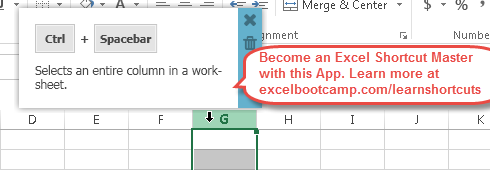5 Ways to Add Rows in Excel Sheets Instantly

Microsoft Excel is a powerhouse tool for data analysis, organization, and computation. Among its myriad features, the ability to quickly add new rows in an Excel sheet stands out as fundamental for many users. Whether you're managing large datasets, handling daily tasks, or conducting complex data operations, knowing how to efficiently add rows can significantly enhance your productivity. Here are five methods to add rows instantly in Excel:
1. Using Keyboard Shortcuts

Keyboard shortcuts are the fastest way to perform repetitive tasks in Excel. Here’s how you can add a new row:
- Place your cursor in the row below where you want to insert a new row.
- Press Ctrl + ‘+’. On Mac, this might be Control + Shift + ‘+’.
- Excel will insert a new row above your current selection.
✅ Note: This shortcut also works for columns by selecting a column and using the same shortcut.
2. Right-Click Context Menu

The context menu provides an intuitive approach:
- Right-click the row header where you want to insert a new row.
- From the dropdown menu, choose Insert.
- A dialog box might appear asking if you want to shift cells down or right; choose according to your need.
3. Excel Ribbon

Excel’s Ribbon interface offers another convenient way to add rows:
- Select the row or multiple rows where you want to add new rows.
- Go to the Home tab, find the Cells group.
- Click Insert, then select Insert Sheet Rows from the dropdown.
4. Dragging and Dropping Rows

This method is particularly useful when you need to insert multiple rows quickly:
- Select the number of rows you want to add by holding Shift and selecting the rows.
- Right-click and select Cut or press Ctrl + X.
- Right-click on the row header where you want to insert these rows, choose Insert Cut Cells.
By doing this, you can effectively move rows up or down, making space for new rows in your dataset.
5. Using Formulas for Dynamic Insertion

If your dataset changes dynamically, you might need a more automated approach:
- You can use formulas like IF, OFFSET, or INDIRECT to dynamically insert rows.
- Here’s a simple example using OFFSET:
Formula Description =OFFSET(A1, COUNT(A:A), 0, 1, 1) This formula will reference a cell dynamically, which can be useful for inserting a new row at the end of your data range. 
⚠️ Note: Be cautious with dynamic formulas as they can make your worksheet slower if not managed correctly.
Mastering these methods to add rows in Excel can streamline your data management tasks, enabling you to handle spreadsheets more effectively. Each technique offers its own advantages depending on the context, from simplicity and speed with shortcuts, to precision with the right-click menu, the user interface approach with the ribbon, dynamic insertion with formulas, or the flexibility of drag and drop. By incorporating these techniques into your workflow, you can not only save time but also maintain the integrity and organization of your data.
What is the fastest way to add multiple rows?

+
Using keyboard shortcuts or the Home tab’s Insert Sheet Rows option from the Excel Ribbon are typically the fastest ways. For very large numbers of rows, consider using macros or VBA scripts.
Can I undo adding rows in Excel?

+
Yes, you can undo by pressing Ctrl + Z. However, if you have performed multiple actions or saved the file, you might lose the ability to undo the operation.
What happens when I insert rows in the middle of a formula range?

+
Inserting rows within a range that is part of a formula might not automatically update the formula. You’ll need to ensure your formulas reference dynamic ranges like OFFSET or INDIRECT to handle such changes smoothly.